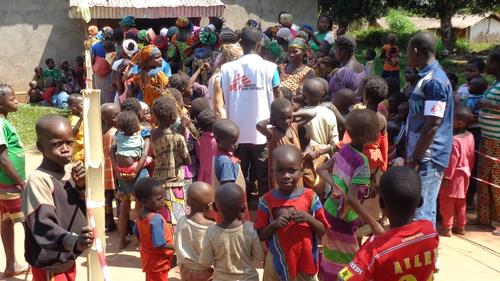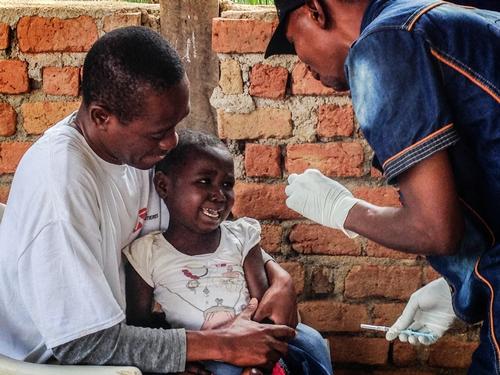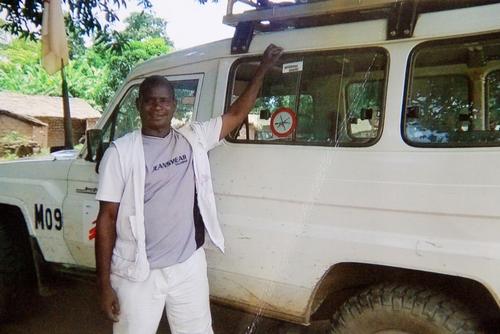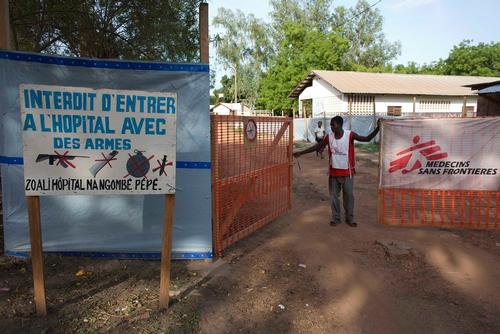Médecins Sans Frontières (MSF) emergency teams have vaccinated almost 10,000 children in the Gadzi area of the Central African Republic, about 300 kilometres west of Bangui, after the appearance of several cases of measles led the local authorities to raise the alarm. The vaccination teams had to cope with major access problems due to the poor state of the roads and the dispersion of the population in the area, where more than 70,000 people live with virtually no basic healthcare.
After two weeks of the campaign, a total of 9,717 children were vaccinated. Some 9,000 children between six months and five years old received measles immunisation. Of these, nearly a thousand were also vaccinated against pneumococcal disease. Pneumococcus is a bacterium responsible for various infections, especially respiratory ones. Additionally, about 700 babies under six months were vaccinated just against pneumococcus disease.
“The campaign began after the alert from a Gadzi local authority, who warned us in late September that there were cases of measles in the area. Initial laboratory tests were negative, but in spite of that a first distribution of drugs was still carried out,” says Montse Pubill, emergency team medical coordinator. “The intervention was complicated by the violence that erupted in the country in October, which caused dozens of deaths in the capital. But the warnings from Gadzi continued and in November a second round of analyses confirmed the presence of measles, so an emergency vaccination was launched,” explains Pubill, a specialist in family medicine who had already worked in the Central African Republic in 2012.
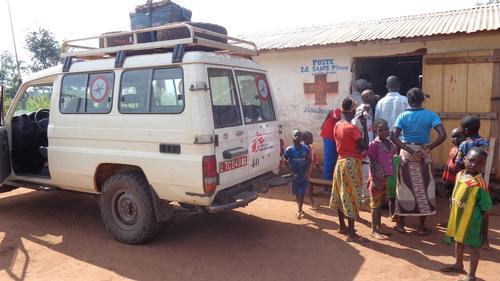
The vaccination campaign was launched in late November from Djomo village, near Gadzi, and for more than two weeks covered a dozen health posts, some of them very remote due to the great dispersion of the population. “Access to some of the posts designated for vaccination was very difficult for us and sometimes for the people as well, so we had to send teams on the fly to look for people with mobile posts. The 13 initial points ended up being about 30,” explains Pubill. In total, more than 300 people participated in the campaign, mostly members of the community and Ministry of Health staff.
To raise awareness about the dangers of the disease and the benefits of vaccinating children, health promotion teams went around the areas to be vaccinated two days before the arrival of the medical teams. “In some places, like the town of Gadzi itself, some people were prejudiced against vaccines, so the work of the health promoters was very important, as usual,” says the medical coordinator. “In many cases they had to go door to door looking for children, and I remember one day that the promoter himself arrived holding two children in his hands with their parents following behind,” recalls Pubill with a smile.
The Gadzi region has been the scene of other MSF emergency interventions. “Despite its important mining activity, it is an area with huge health gaps where most health posts are just empty rooms with no ability to provide assistance to people,” says Pubill. “It is paradoxical that in the region there are areas of diamond mining, which generates income for some but doesn’t generate a minimum wellbeing for most of the population,” he says. “There are men who get some money in the mines, but they generally go to Carnot (a city in the west) to spend it.” Thus, many families don’t have even the minimum required to pay for basic treatments and, although MSF gives free service in the Carnot hospital, “the 100-kilometre journey to get there is a difficult barrier to overcome because hardly anyone has resources to pay for a motorcycle taxi in case of illness,” regrets the MSF member.
MSF has worked in the Central African Republic since 1997 and currently has more than 300 international staff and over 2,000 Central African workers in the country. Since December 2013, MSF has doubled its level of medical care in response to the crisis. Currently, MSF is running some 20 projects, including several to assist Central African refugees in the neighbouring countries of Chad, Cameroon and the Democratic Republic of Congo.



